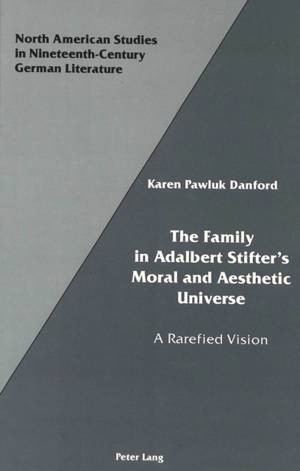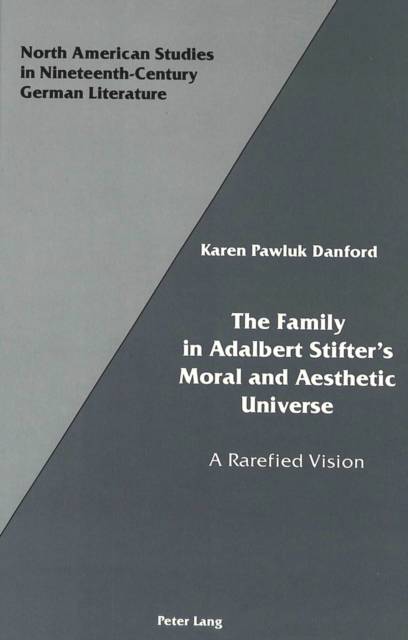
- Afhalen na 1 uur in een winkel met voorraad
- Gratis thuislevering in België vanaf € 30
- Ruim aanbod met 7 miljoen producten
- Afhalen na 1 uur in een winkel met voorraad
- Gratis thuislevering in België vanaf € 30
- Ruim aanbod met 7 miljoen producten
Zoeken
The Family in Adalbert Stifter's Moral and Aesthetic Universe
A Rarefied Vision
Karen Pawluk Danford
€ 46,45
+ 92 punten
Omschrijving
This study focuses on the role of the family in European bourgeois society and literature in the 19th century through the works of Adalbert Stifter (1805-1868). The traditional patriarchal family was undergoing a crisis arising from the very principles of commercial society, while the emerging middle-classes idealized familiar piety as part of its liberal ideology. Socialist thinkers also attacked the family for its connection to private property and inherent tension with universal humanism. Stifter struggled with the negative and positive aspects of the family in his social essays and the Studien and Bunte Steine collections. In his greatest work, Der Nachsommer, he asserts the importance of the family for individual happiness and social cohesion, but at some cost, since the enlightened, aestheticized world he presents there rests on a such rarefied vision of human nature.
Specificaties
Betrokkenen
- Auteur(s):
- Uitgeverij:
Inhoud
- Aantal bladzijden:
- 190
- Taal:
- Engels
- Reeks:
- Reeksnummer:
- nr. 7
Eigenschappen
- Productcode (EAN):
- 9780820408255
- Verschijningsdatum:
- 1/07/1991
- Uitvoering:
- Hardcover
- Formaat:
- Genaaid
- Afmetingen:
- 236 mm x 161 mm
- Gewicht:
- 419 g

Alleen bij Standaard Boekhandel
+ 92 punten op je klantenkaart van Standaard Boekhandel
Beoordelingen
We publiceren alleen reviews die voldoen aan de voorwaarden voor reviews. Bekijk onze voorwaarden voor reviews.











